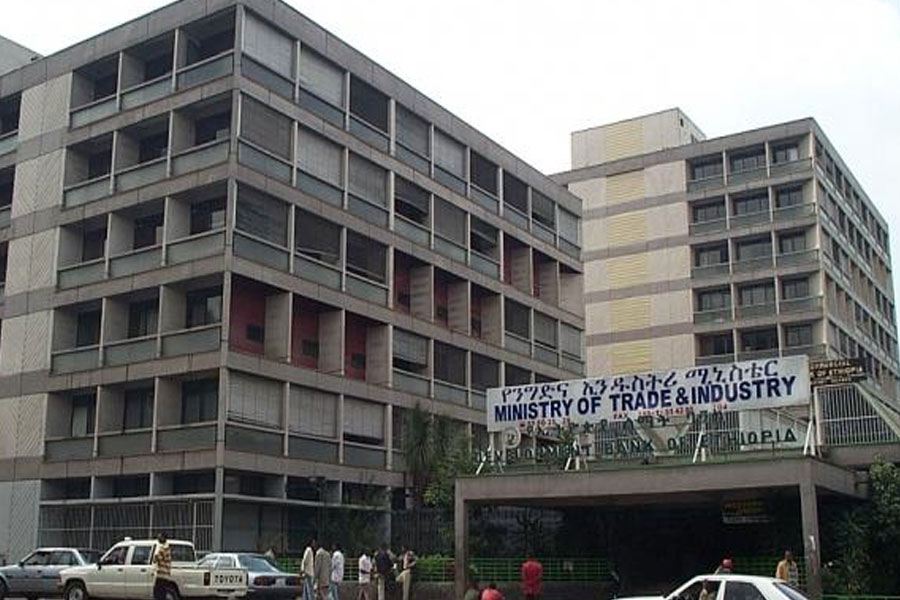
Fortune News | Jan 19,2019
Land grading and property valuation criteria across all 2500 cities in the country are set to be formalized as a 51-page standard manual by the Ministry of Urban & Infrastructure to assess real property value targets, increased public revenue and harmonized measurements for the looming property tax.
The Real Property, Market & Valuation Permit Division within the Minstry seeks to create complementary standards to a historically haphazard approach to land grading in which city administrations autonomously evaluate a property and set land grades.
Real property is defined in the proposed manual to include land-holding titles and any land-related estate for housing, business or industry purposes that can be rented and sold in the market.
Land Development and administration bureaus across city administrations will be mandated to provide grading by factoring access to infrastructure, type of material used for construction and plot size.
Adane Egzie, who heads the valuation division at the Ministry, suggests that the primary goal of the new manual goes beyond merely adjusting land lease rates to boost government revenue as it aims to set standards for the levying of property taxes.
"It will serve as a cornerstone of the property tax," Adane told Fortune.
The draft explains that five grades based on scores out of 100 would be given, with the 1st-grade properties being those who manage to have aggregate values above 85 and the lowest grade of five being those who measure up to less than 40.
"The land grading criteria will improve the revenue mobilization of cities," he told Fortune.
Land lease auctions, which were restarted in Addis Abeba after a five-year break, fetched jaw-dropping bids back this year with one offer for a grade one 390sqm plot in the Sar Bet area of Kirkos District, having received a bid of 695,000 Br for a square meter.
Adane indicated population density information, infrastructural development and urban masterplans will also be factored into the valuation of land.
"A holistic approach was applied in drafting the standards," he underscored.
Adane also noted that the grading system complements another bill allowing the private sector to participate in property valuations by setting an overarching national standard.
The bill, under review at the Ministry of Justice, prescribes that city administrations and regional states would issue permits to the private valuators after training and tests.
He emphasized that the Addis Abeba and Dire Dawa city administrations will adopt the grading standard with little contextualization once it is approved.
The capital's city administration has been applying a land grading system with 4 main grades with 18 subcategories following a study by Addis Abeba University for a year at a cost of three million Br, which prompted the revision of lease auction offers.
Dereje Lakew, Head of Legal Affairs at the capitals Land Administration Bureau, points to the need to modify the proposed national standards to the peculiar context of each city.
"It is a complicated endeavour," he told Fortune.
Dereje explains that the two-year-old grading system already in place contains 18 sub-categories, while the proposed manual cuts it down to 15.
"Further study is necessary," he indicated.
Research by Abraha Tesfaye in 2015 indicates that land grading systems applied throughout Ethiopia have not enabled efficient valuation of properties due to their seemingly haphazard approach and lack of harmonization between cities.
Mohammed Beji, who heads the immovable property valuation at Dire Dawa Land Management Bureau, has been applying a revised land grading system for the past two years after referencing international practices and academics from the charter city's university.
"The new manual fails to take some unique features of the city," he told Fortune.
Mohammed indicates that Dire Dawa contains a free trade zone that sits on a vast 150-hectare space, complicating the implementation of national benchmarks.
He also pointed out that they have been giving lower grades to properties near landfills, which is not mentioned in the new manual.
"Customizing the manual to the uniqueness of each city will actually help increase revenue," he told Fortune.
The draft manual has gone through rigorous discussions with stakeholders across several regional states for a year in a bid to bring about uniformity of implementation and is waiting for approval from Chaltu Sani, the Minister of Urban Development & Infrastructure.
Despite the Ministry drafting a valuation standard to bolster revenue mobilization in cities and set up fertile grounds for the imposition of property taxes, academics still question the feasibility of imposing property taxes when land is still under government ownership.
Masresha Belete, lecturer on property value at the Institute of Land Administration at Debre Markos University, insists that property ownership laws must be reevaluated before imposing a host of new regulations and tax obligations.
"Land should be privatized before it is subject to taxation," he told Fortune.
Masresha indicates that the government already collects lease payments and minor taxes on land, rendering the levying of property tax a questionable construct.
He also suggests that property valuations and land grading systems should be preceded by the standards given to cities first.
"Property in every city has a unique context," he said.
In January, a joint session of the House of People's Representatives and the House of Federation ratified the placement of mandates to collect property taxes on city administrations and regional states.
PUBLISHED ON
Nov 25,2023 [ VOL
24 , NO
1230]

Fortune News | Jan 19,2019

Radar | Nov 11,2023

Fortune News | Dec 16,2023

Radar | Jul 02,2022

Radar | Jan 05,2019

Radar | Oct 10,2020

Radar | Dec 16,2023

Radar | Jul 31,2021

Radar | Jun 12,2023

Life Matters | Mar 12,2022

Dec 22 , 2024 . By TIZITA SHEWAFERAW
Charged with transforming colossal state-owned enterprises into modern and competitiv...

Aug 18 , 2024 . By AKSAH ITALO
Although predictable Yonas Zerihun's job in the ride-hailing service is not immune to...

Jul 28 , 2024 . By TIZITA SHEWAFERAW
Unhabitual, perhaps too many, Samuel Gebreyohannes, 38, used to occasionally enjoy a couple of beers at breakfast. However, he recently swit...

Jul 13 , 2024 . By AKSAH ITALO
Investors who rely on tractors, trucks, and field vehicles for commuting, transporting commodities, and f...

Jul 5 , 2025
Six years ago, Ethiopia was the darling of international liberal commentators. A year...

Jun 28 , 2025
Meseret Damtie, the assertive auditor general, has never been shy about naming names...

Jun 21 , 2025
A well-worn adage says, “Budget is not destiny, but it is direction.” Examining t...

Jun 14 , 2025
Yet again, the Horn of Africa is bracing for trouble. A region already frayed by wars...